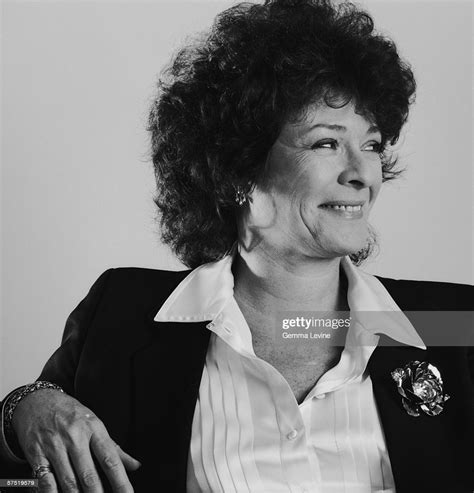A Quote by Johann Wolfgang von Goethe
When I consider the narrow limits within which our active and inquiring faculties are confined; when I see how all our energies are wasted in providing for mere necessities, which again have no further end than to prolong a wretched existence; and then that all our satisfaction concerning certain subjects of investigation ends in nothing better than a passive resignation... when I consider all this... I am silent.
Related Quotes
Were it possible for us to see further than our knowledge reaches, and yet a little way beyond the outworks of our divinings, perhaps we would endure our sadnesses with greater confidence than our joys. For they are the moments when something new has entered into us, something unknown; our feelings grow mute in shy perplexity, everything in us withdraws, a stillness comes, and the new, which no one knows, stands in the midst of it and is silent.
If we make up our minds that this is a drab and purposeless universe, it will be that, and nothing else. On the other hand, if we believe that the earth is ours, and that the sun and moon hang in the sky for our delight, there will be joy upon the hills and gladness in the fields because the Artist in our souls glorifies creation. Surely, it gives dignity to life to believe that we are born into this world for noble ends, and that we have a higher destiny than can be accomplished within the narrow limits of this physical life.
It may well be that our means are fairly limited and our possibilities restricted when it comes to applying pressure on our government But is this a reason to do nothing? Despair is nor an answer Neither is resignation Resignation only leads to indifference, which is not merely a sin but a punishment.
If we consider how greatly he has sinned against the masses in the course of the centuries, how he has squeezed and sucked the blood again and again; if furthermore, we consider how the people gradually learned to hate him for this, and ended up by regarding his existence as nothing but punishment of Heaven for the other peoples, we can understand how hard this shift must be for the Jew.
Teach him to live rather than to avoid death: life is not breath, but action, the use of our senses, our mind, our faculties, every part of ourselves which makes us conscious of our being. Life consists less in length of days than in the keen sense of living. A man maybe buried at a hundred and may never have lived at all. He would have fared better had he died young.
If one looks at all closely at the middle of our own century, the events that occupy us, our customs, our achievements and even our topics of conversation, it is difficult not to see that a very remarkable change in several respects has come into our ideas; a change which, by its rapidity, seems to us to foreshadow another still greater. Time alone will tell the aim, the nature and limits of this revolution, whose inconveniences and advantages our posterity will recognize better than we can.
Adversity is a severe instructor, set over us by one who knows us better than we do ourselves, as he loves us better too. He that wrestles with us strengthens our nerves and sharpens our skill. Our antagonist is our helper. This conflict with difficulty makes us acquainted with our object, and compels us to consider it in all its relations. It will not suffer us to be superficial.
And Botany I rank with the most valuable sciences, whether we consider its subjects as furnishing the principal subsistence of life to man and beast, delicious varieties for our tables, refreshments from our orchards, the adornments of our flower-borders, shade and perfume of our groves, materials for our buildings, or medicaments for our bodies.
The further limits of our being plunge, it seems to me, into an altogether other dimension of existence from the sensible and merely understandable world. Name it the mystical region, or the supernatural region, whichever you choose. So far as our ideal impulses originate in this region (and most of them do originate in it, for we find them possessing us in a way for which we cannot articulately account), we belong to it in a more intimate sense than that in which we belong to the visible world, for we belong in the most intimate sense wherever our ideals belong.
Let us ask... how things work at the level of on-going subjugation, at the level of those continuous and uninterrupted processes which subject our bodies, govern our gestures, dictate our behaviors, etc... we should try to discover how it is that subjects are gradually, progressively, really and materially constituted through a multiplicity of organisms, forces, energies, materials, desires, thoughts, etc. We should try to grasp subjection in its material instance as a constitution of subjects.






































